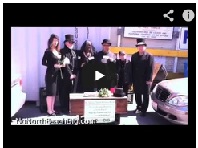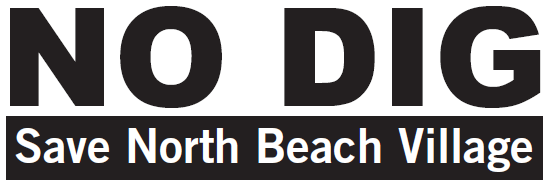SFMTA Capital Project Controls System (CPCS)
The Central Subway Partnership Joint Venture (CSP) is the contractor Muni hired to manage the T-Third Phase II Central Subway construction.
$22M Cost control contract but no promised state-of-the-art software?
Muni hired Hill International to provide cost and schedule controls. Hill International chose to use the EcoSys EPC project control software system, in use throughout the world on hundreds of major construction projects.
CS-156 Contract with Hill International, September 1, 2010.
- Agreement CS-156 - Appendix A and B.PDF A: FTA Requirements; B: Software Agreement
- Agreement CS-156 - Appendix C and D.PDF C: Task 2 Schedule; D: Task 1 Rate Schedule
- Agreement CS-156 - Appendix E and F.PDF E: Task 2 Cost & Rate Schedules; F: Clarification of Agreement
- This $22,268,5541 contract consists of:
- Task 1: Consulting and management services utilizing a Capital Program Controls System (CPCS). Task 1 price $17,112,873.
- Task 2: Design and implementation of a Capital Program Controls System (CPCS), consisting of computer software, business processes, and related services. The software system chosen was the EcoSys EPC software. Task 2 price $5,155,668.
Under Task 2 it looks like all data was converted to run under EcoSys EPC software - see PP#6 below.
Looks like Task 2 total services was $1.775M, and other Task 2 items were $3.381M, for total of $5.156M as of October 2012.
The CPCS using EcoSys EPC went live on December 13, 2012.
In May 2013 the EcoSys EPC software system was taken offline. Since then the $1.6B Central Subway project has been guided by data from Excel spreadsheets.
Since Task 2 seems to have been discarded, a $5.156M loss.
- CS- 156-2 PP#1.pdf
- CS-156-2 PP#2.pdf
- CS-156-2 PP#3.pdf
- CS-156-2 PP#4.pdf
- CS-156-2 PP#5.pdf
- CS-156-2 PP#6.pdf Final progress payment
December 2012: Possibly illegal software development for SFMTA using Central Subway funds?
- A Capital Program Controls System (CPCS) was rolled out at the Central Subway in December 2012 for managing Central Subway costs and schedules. This system was developed using Central Subway funds, a combination of federal, state, and local funds.
- A CPCS was rolled out at SFMTA's Capital Programs and Construction (CP&C) Division in December 2012. The CP&C Division does not manage the Central Subway. (See Enclosure B SFCTA Board June 17, 2014 Limited Management Performance Audit of the SFMTA (Draft), June 17, 2014, Item 8.)
- Are the CPCS's used by the Central Subway and CP&C the same system? In other words, were Central Subway funds illegally used to develop an SFMTA in-house system?
June 2014: SFMTA committed to use of CPCS capital controls system but Central Subway is not?
- A Capital Program Controls System (CPCS) was rolled out at SFMTA's Capital Programs and Construction (CP&C) Division in December 2012. The CP&C Division manages 60 projects but does not manage the Central Subway. (See Enclosure B SFCTA Board June 17, 2014 Limited Management Performance Audit of the SFMTA (Draft), June 17, 2014, Item 8.)
- This CPCS will be rolled to the remaining SFMTA Divisions in July 2014 (see Item 8 of the same SFMTA Audit report above). The CP&C Division manages 60 projects, and there are 370 projects in all SFMTA Divisions.
- The Central Subway project is not managed by the CP&C Division, but rather by the Director of Transportation, Ed Reiskin. (From a verbal presentation by Vince Harris, SFMTA Director of CP&C, SFCTA meeting, June 17, 2014.)
- In May 2013, about six months after the CPCS went live at the Central Subway, it was taken offline. (See PMOC Nov 2013 report, pg ES-iv, "Cost Reporting"). Since that time data is entered manually into MS Excel spreadsheets.
- It's odd that the largest project in SFMTA (Muni) history, the Central Subway at $1.6 billion, is not being managed by the same controls systems that all other Divisions and projects are now committed to. In fact, Central Subway costs are not being managed at all — there is no Cost Engineer and no state-of-the-art software system for the project.
June 2014: County Transportation Authority (SFCTA) grills SFMTA on project controls
Supervisor Campos presses for SFMTA accountability
At the June 17, 2014 SFCTA Plans and Programs Committee meeting, Supervisor David Campos reviewed the SFMTA report he had requested at the April meeting. Some highlights from the video recording of the meeting (see below for more):
- Campos commented that before the voters give SFMTA more money (e.g. $500M bond on fall ballot) SFMTA must show that it can track its capital projects' schedules and budgets and avoid overruns.
- Campos noted that SFMTA has no overall awareness of the status of its numerous projects.
- Campos recommended that the SFMTA Board be given more accurate information on active projects and their schedules and budgets. Currently the SFMTA Board approves expenditures for projects with almost no data on their budget and schedule status.
- SFGovTV Video of Meeting Click here.
- (45:58) Maria (Cordero?), SFMTA Contract Compliance Office - Item 9 Introduction
- (47:45) Vince Harris, SFMTA Director of Capital Programs and Construction
- (53:10) Use of CPCS software (Primavera P6 & EcoSys EPC) allows finding problems and "raising a red flag so we can take corrective action." Harris's office tracks almost all capital projects, except for the Central Subway which is handled by the Director of Transportation (Ed Reiskin).
- (58:18) CPCS project control systems are to be rolled out for all SFMTA projects [did not say by when].
- (58:52) Campos commented that before the voters give SFMTA more money (e.g. $500M bond on fall ballot) SFMTA must show that it can track its capital projects' schedules and budgets and avoid overruns. Campos noted that SFMTA has no overall awareness of the status of its numerous projects.
- (1:01:47) Campos asked Harris how many projects SFMTA is tracking and the status of the projects. Harris did not know and called on his Capital Controls Manager Lucien Burgert. Burgert said there are about 40 projects, 50-60% are on schedule and 80-90% are on budget.
- (1:05:14) Campos recommended that the SFMTA Board be given more accurate information on active projects and their schedules and budgets. Currently the SFMTA Board approves expenditures for projects with almost no data on their budget and schedule status.
- Even though Harris and SFMTA are committed to using state-of-the-art CPCS Project Control systems for all SFMTA capital projects, the Central Subway CPCS Project Control system was taken offline in May 2013. The Central Subway is the biggest project ever done by Muni — odd that they don't track this using state-of-the-art software but instead rely on data entered manually into MS Excel spreadsheets.
Meeting details:
- Item 9 from the June 17, 2014 meeting (agenda):
9. Progress Report on Performance Audit of the San Francisco Municipal Transportation Agency – INFORMATION enclosures *
At the April Plans and Programs Committee meeting, Commissioner Campos asked for a progress report on the San Francisco Municipal Transportation Agency’s (SFMTA’s) implementation of the recommendations included in the Limited Scope Performance Audit of the SFMTA that was commissioned jointly by the Board of Supervisors and the Transportation Authority Board in late 2010. The final report, which was prepared by CGR Management Consultants LLC, was presented to the Transportation Authority Board on November 15, 2011. The purpose of the audit was to help the SFMTA to better assess its effectiveness in achieving agency objectives in its capital programs for transit vehicles, systems, and facilities. The report identified 19 recommendations which were grouped into the following areas: staff organization and responsibilities; capital program management processes; and financial planning and control. At the June Plans and Programs Committee meeting, Vince Harris, SFMTA Director, Capital Programs & Construction Division will provide an update on SFMTA’s progress toward addressing the audit recommendations and other initiatives to further improve project delivery. This is an information item.
- * Enclosures:
- Enclosure A SFCTA Board June 17, 2014, Project Delivery.
- p.5 2011 Audit recommends use of Capital Project Controls System (CPCS) & EcoSys to correct "confusing financial information."
- p.35 Next Steps: Expand use of CPCS from current 140 active projects to all 400 active projects.
- Enclosure B SFCTA Board June 17, 2014 Limited Management Performance Audit of the SFMTA (Draft), June 17, 2014.
- EcoSys p.2, #8, #10.
- Enclosure A SFCTA Board June 17, 2014, Project Delivery.
July 2014 Whistle Blower summary
Whistle Blower summary and data
EcoSys at SFMTA
- EcoSys User Conference, September 7-9, 2014. Case study on EcoSys EPC used at SFMTA, to be presented by Lucien Burgert, SFMTA Capital Controls Manager.
- SFMTA Presentation Operational Efficiency Project Delivery July 23, 2013. EcoSys p.16.
- SFMTA Presentation: Cost Controls for Project Lifecycle, May 29, 2013. Uses Primavera P6 Scheduling and EcoSys EPC software. EcoSys p.7.
- EcoSys SFMTA Software License Agreement - executed April 26, 2012 by all parties. $207K total license plus maintenance.
- Microsoft SharePoint Utilization at the SFMTA, October 21, 2011. EcoSys p.7.
- EcoSys chosen by Hill International to manage costs for $4.5B of SFMTA projects, Press release Dec 2010.
EcoSys used elsewhere
Houston Airport use of EcoSys, beginning 2012.
LA Metro use of EcoSys for $40B worth of projects.
Inaccuracies
- In all Central Subway publicity it is billed as a "1.7-mile extension of Muni’s T Third Line." Facts: the distance from Caltrain to Chinatown Station, the full extent of the Phase II extension, is only 1.3 miles and of that only 1.2 miles of subway tunnels. The Central Subway budget is $1.6B, or about $1.3B per mile of subway.
- Central Subway completion timeline slippage of 6–12 months
In two separate reports from June 2014 the Revenue Service start is shown varying from December 2018 to late 2019. Are they trying to hide the fact that the project is already going to be one year late?
- Central Subway Factsheet June 13, 2014, page 2. On this same factsheet just above Project Goals it states "Revenue service is scheduled for December 2018."
- Central Subway Program Project Delivery, from 2015-2019 Capital Investment Plan, page 59 (30/208), adopted by SFMTA Board May 20, 2014




